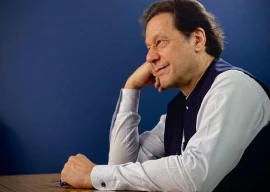Citizens who could not penetrate traditional media or outright avoided it have found a way to get their voice across to a global readership. Those abroad also form part of the fast-growing local diaspora, giving Pakistan a multi-dimensional voice in the online space. One such voice has been that of Chapati Mystery – an online blog run by Dr Manan Ahmed, launched in the post Iraq war era.
At the time, raising questions not being addressed by mainstream media through a free online medium gave a platform to voices of dissent across the globe in the post 9/11 world. Ahmed’s writing on imperialism and media criticism could have affected his future as an academic, but Ahmed felt the need to blog his thoughts was critical.
“I believe that there is an ethical way in which we have to engage with the world we live in, and as ethics includes a commitment to seeking truth and explanation of various fundamental issues, we have to fulfill that responsibility whether I was a grad student, whether I had a tenure or not, that would not stop me from being an ethical citizen” said Ahmed.
A trained historian of Islam, in addition to academic blogging in a simpler language, Ahmed began writing long form essays and articles for a various publications international and local, which were eventually published as a book “Where the Wild Frontiers Are: Pakistan and the American Imagination”.
“Concept of space, concept of frontiers and how various empires have always had this tendency to locate physical geography – on which they all project all of their anxieties; I started tracing this from the Umayyad caliphate onwards, seventh and eighth century. It just happened that at that precise moment, for American foreign policy discourse, frontier became this big focus. Obama said that the real war will be in Afghanistan and Pakistan, so I started writing about frontier as a notion of geography,” said Ahmed.
For this academic, Chapati Mystery eventually expanded from a personal blog exploring ideas and topics from Zaid Hamid to minority rights, to tackling the issue of "cultural and historical amnesia". In the words of Ahmed: "You need a certain type of political and cultural will to say history is important, historians are important, archiving is important."
COMMENTS (2)
Comments are moderated and generally will be posted if they are on-topic and not abusive.
For more information, please see our Comments FAQ



1732263441-0/BeFunky-collage-(81)1732263441-0-165x106.webp)
1732263755-0/musk-(3)1732263755-0-165x106.webp)


1732258132-0/BeFunk_§_]__-(26)1732258132-0.jpg)
1732257537-0/Copy-of-Untitled-(64)1732257537-0-270x192.webp)
1726722687-0/Express-Tribune-Web-(9)1726722687-0-270x192.webp)







Its been years since I started blogging. The way it has shaped is pretty disappointed. The power of free speech mostly misused. Among the abusers are youngsters at majority.
Good read! I was a grad student, whether I had a tenure or not, that was not stop me from being an ethical citizen” said Ahmed. (Requires revision)